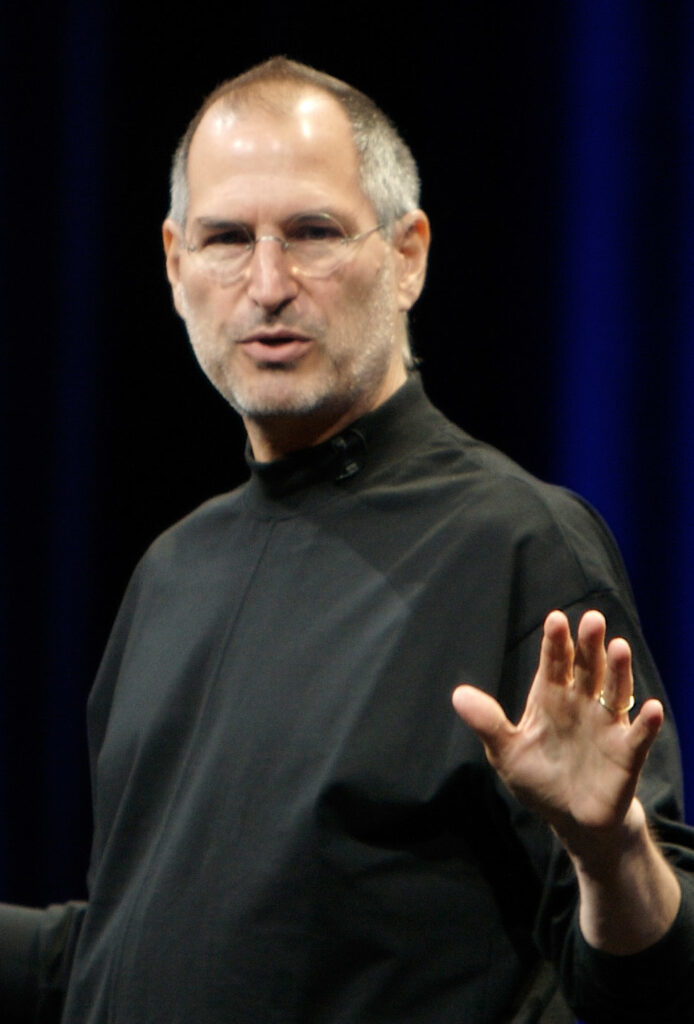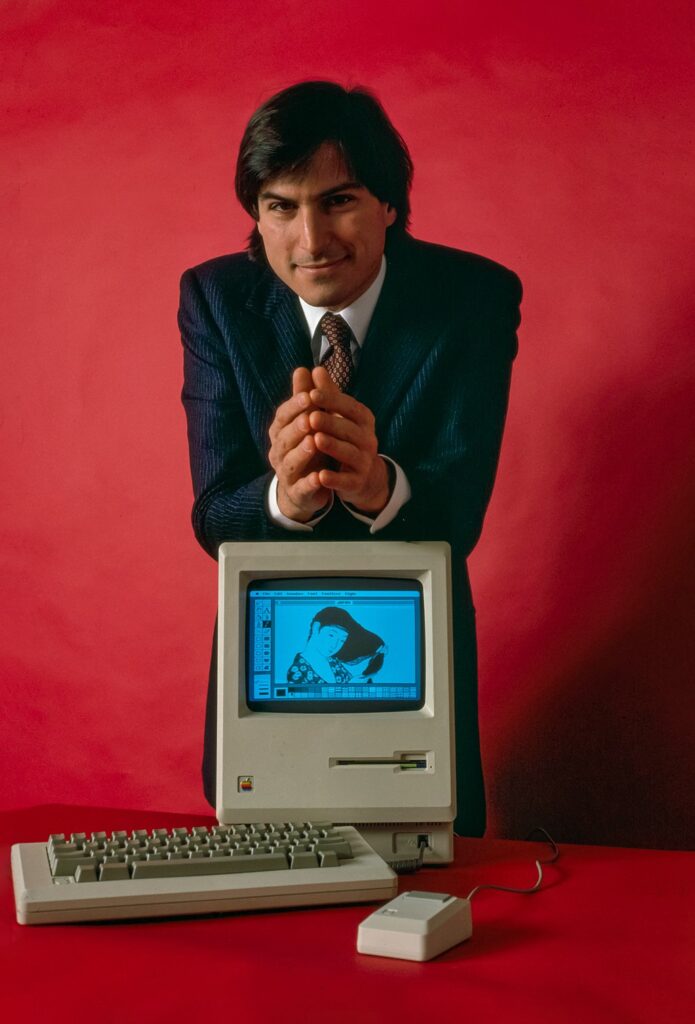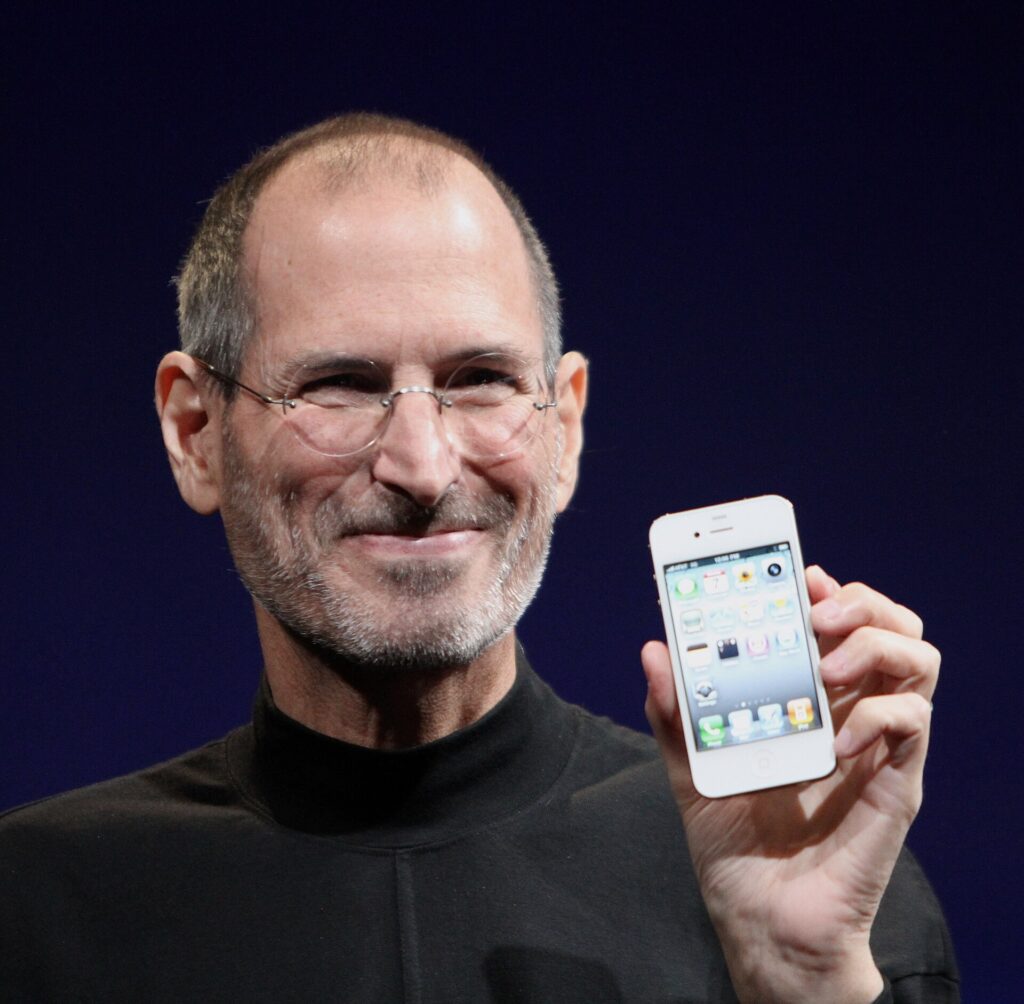Steve Jobs: He is the quintessential innovator, the first nerd to be admired by the entire world, and is constantly being glorified for the example he has left us. Not only did he make Apple the richest and most imitated company, but his vision of life and approach to work also left a useful trace for posterity. Hundreds of different articles could be written about Steven Paul Jobs because he combined the high and the low, genius and restlessness, being a role model and being ruthless (with employees).
If you analyse him from the beginning, his life was not downhill. Abandoned by his parents, a German student and a Syrian professor who were not enthusiastic about raising a child, he was rejected by the couple who were supposed to look after him because they preferred a girl. He was finally taken in by a family as modest as they were serious, and the promise of enrolling the child in college was fulfilled after decades of sacrifice and savings.
Eliminate the useless, devote yourself to your interests
College turned out to be a decisive moment in the development of Steve’s personality, which was allergic to authority but also to courses that spread notions instead of teaching him the meaning of life. This is the goal of his articulated path, full of trials to overcome. Before embracing electronics, which he was introduced to by a neighbour’s passion, he travelled to India in search of happiness, discovering Zen philosophy and Buddhist ideas. He sleeps wherever he can, even back in California, and has made minimalism his credo to the point of taking glass bottles back to the shopkeeper for a few pennies or walking dozens of miles to secure a free Hare Krishna meal.
Years later, Jobs would say that those were the most important years of his career despite the hardships. Because in those out-of-the-ordinary experiences, including the constant use of LSD, his mind worked by subtraction, eliminating the uselessness of discovering what interested him. This is why he took a course in calligraphy, which was absurd at the time but useful ten years later when he designed the Macintosh, the first computer with proportionally spaced characters.
A bet turned the fortune
What amazed Jobs was his ability to go beyond what he saw to imagine new objects or functions that would change the perception of previously considered immutable elements. Combining his vision with the practicality of Steve Wozniak, whom he had met at the Homebrew Computer Club, a meeting place for electronics enthusiasts, a winning idea was born: Apple. After leaving Atari and Hewlett Packard almost as a gamble, and with only $1,300 in capital, Jobs and Wozniak built the Apple I in 1976. It was the foundation stone of what would become the most iconic company in contemporary history, thanks to the flair of Mike Markkula, the company’s first investor, who became CEO and the owner of a dream fortune.
Jobs’ merit was to follow his intuition without wavering in his obsessive pursuit of success. That success came at age 25, with Apple’s IPO in 1980, due to launching a product capable of disrupting the status quo, creating an unprecedented market, transforming habitual processes and shaping the future according to his beliefs. He achieved a goal by fishing in other people’s basins, as when he discovered the computer with a graphical interface guided by a mouse in the Xerox laboratories.




Fall and rebirth
The admiration Jobs enjoys, still very high almost thirteen years after his death, enjoys is partly due to his ability to bounce back after a fall from grace. Being thrown out of the company you founded is a potentially fatal blow for many entrepreneurs, but in this case, it was a free ticket to explore new horizons. First, NeXT and then Pixar, which he entered after acquiring George Lucas’s shares for $10 million, were the salvation for Jobs, who filled his wallet again by taking Pixar to the stock market, thanks to the extraordinary success of Toy Story, the first animated film made entirely on computer.
Furthermore, the ability to turn around a company’s fortunes and influence employees by speeding up product development without abandoning meticulous attention to every single aspect allowed Jobs to leave his footprint in the great book of history. The masterpiece of his parable came with his return to Apple, desperate for a breakthrough to avoid bankruptcy. Jobs transformed a free-falling group into a symbol of innovation by forgoing his salary and reorganising the company.
Steve Jobs
He does this with the iPod, which puts walkmans and CD players out of business and continues with iTunes, which is the ancestor of Spotify, to the iPhone, which kills mobile phones and makes Apple the coolest company in the world by putting the functionality of a personal computer in a pocket-sized object.
Beyond the products, Steve Jobs’s essence remains with us, summed up in the collective imagination by ‘Stay hungry. Stay foolish‘, the motto he gave to Harvard students on 12 June 2005 in the speech that was considered his testament. Four words are not enough, to sum up the legacy of a visionary who has had such a profound and lasting impact, but they can be the fuel to set in motion a generation that must write its future.



